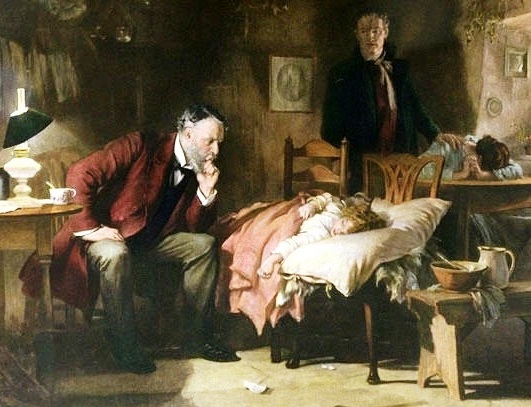Chronic Fatigue Syndrome Diagnosis
A Medical Evaluation Performed by Diagnosis of Exclusion
Copyright © 2014 Kelly Smith; all rights reserved; content may not be copied, rewritten, or republished without author’s written permission; Author’s Google profile; Posted January 23, 2014


When a person visits the doctor for treatment of the symptoms of Chronic Fatigue Syndrome, the physician might not know it is a legitimate disease. Many might suspect something like the flu in conjunction with overwork, athletic injury, etc.
However the doctor might begin to suspect Chronic Fatigue Syndrome
after asking routine questions such as: How long have you been experiencing this fatigue? Has your memory or ability to concentrate been getting worse? Have any events of significant stress occurred since you have been tired?
Chronic Fatigue Syndrome diagnosis is not performed in the same manner as other conditions such as tumors or the flu. This is because all the symptoms of Chronic Fatigue are manifested in other conditions.
For that reason, other conditions which manifest similar symptoms are tested for. If a match is made, so be it; the diagnosis is made. If not, the condition is ruled out.
In the case that all are ruled out, Chronic Fatigue Syndrome becomes the diagnosis by default. This is referred to as a “diagnosis of exclusion.”
One standard set of requirements for diagnosis of Chronic Fatigue Syndrome is the Fukuda Criteria. The set is comprised of the following requirements.
- The symptoms must have manifested recently and not have been ongoing from the time of birth.
- No other condition has yielded a satisfactory explanation (diagnosis of exclusion).
- At least a six month period must have passed since the symptoms began.
- The condition does not get any better due to proper rest.
- In addition to the above, there are eight additional symptoms, four of which must be satisfied for a positive Chronic Fatigue Syndrome diagnosis.
- Problems with concentration and short term memory.
- Lymph node tenderness.
- A sore throat.
- A type of headache that is unusual for the patient.
- Insomnia and/or sleep that does not refresh.
- Pain in more than one joint simultaneously.
- Intramuscular pain.
- A general malaise which persists for at least a twenty four hour period following exertion
Once the Chronic Fatigue Syndrome diagnosis has been established the doctor will recommend treatments for the individual symptoms and establish a series of follow up visits to monitor progress.
Unlike some other diseases it is difficult or impossible to predict the possibility or time of recovery.
For the rest of the series of articles on this topic, go to page 1 2 3 4 5
More Trending Articles
- Reduce the Effects of Winter and S.A.D. (Seasonal Affective Disorder)
- How do Low-Carb Diets Work?
- Understanding Nutrition Labels and Serving Size
- The True Cost of Obamacare
Website © 2011 KSmith Media, LLC; all rights reserved; content may not be copied, rewritten, or republished without written permission.